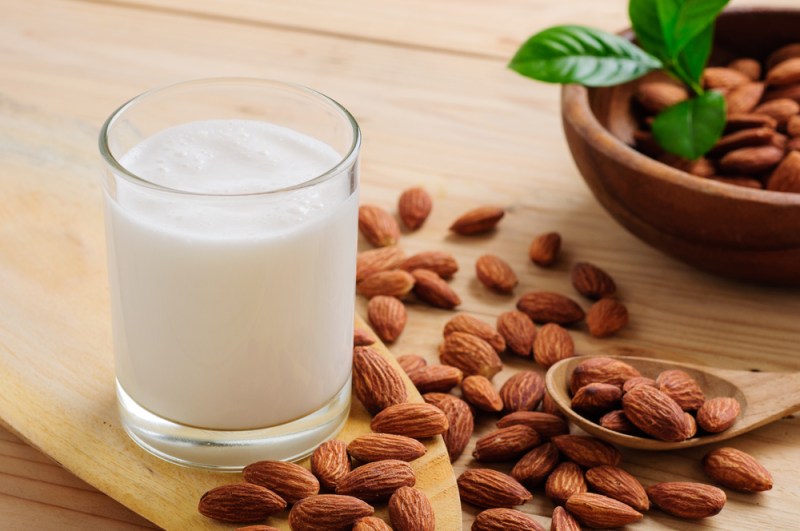While cow’s milk has traditionally been a diet staple, dairy-free options are becoming more and more mainstream due to dietary restrictions, personal preference, and lactose intolerance. We’ll walk you through the different types of dairy-free milk, what you can use them for, the health benefits, and our favorite brands. Check out our Milk Alternatives Guide below!
Hemp Milk

Hemp milk comes from the seeds of the hemp plant combined with water, and has a mild, nutty flavor. It’s a thin and creamy milk, so is a good option for a skim milk substitute, poured over cereal, or in smoothies. Hemp is an especially good source of phosphorus and magnesium. Phosphorus helps the renal (kidney) system work properly, while magnesium is used by our bodies for muscle and immune function, and to support a healthy heart. Our preferred brand is Pacific Foods Hemp Non-Dairy Beverage, found at Whole Foods and other health stores.
Oat Milk

Oat milk is created by combining oats and water. It is most similar to whole milk in terms of mouthfeel and is an excellent substitution in lattes. This plant-based powerhouse is mild and sweet in flavor and contains tons of fiber to help your body’s digestion. Oat milk is also high in manganese, which is used by the body to promote normal growth and health; manganese also aids in the digestion of fats, proteins, and carbs. Thiamin, also called Vitamin B1, is another key benefit of consuming oats and generates energy while supporting healthy cell functionality. Our favorite brand is the Sweden-based Oatly, which has been producing oat milk for thirty years! Oatly is currently only available at specialized coffee parlours.
Cashew Milk

images72/Shutterstock
Cashew milk is creamy and rich in taste, a mixture of cashews and water. It’s great to use as coffee creamer, for baking, and in smoothies. Cashew milk is especially good in a golden milk latte. Its main health benefit is for those watching their waistline, as it is low in calories and fat. Forager Project is our brand of choice, available at health food stores.
Soy Milk

Soy milk, made from soybeans, is closest to cow’s milk when compared nutritionally. It contains lots of potassium and calcium, as well as being a complete protein with all amino acids. Potassium helps with overall health, while calcium is necessary to build and protect bones. This milk alternative is especially excellent poured over cereal or muesli. Silk is a good option for a brand of soy milk and is readily available at most grocery stores.
Coconut Milk

Coconut milk, made from the flesh of coconuts combined with water, can either be found in a can or in a carton. For our purposes, we will focus on the carton since that’s the dairy-free milk substitute. Coconut milk has a distinctly coconutty flavor, and is perfect for baking, in smoothies, and as coffee creamer. It is a noteworthy type of milk since it has the lowest carbs of all the dairy-free options. So, coconut milk is a good choice for those following the keto diet. Our preferred brand is So Delicious!
Almond Milk

Last but certainly not least, is almond milk, the most popular milk substitute; it has a nutty, pleasant flavor. It can be used in lieu of cow’s milk in homemade ice cream, baking, and smoothies. The high amount of Vitamin E in almond milk is a great health benefit, since it’s an antioxidant, and helps with vision, skin, and brain health. We like the Blue Diamond’s Almond Breeze brand.
Overall, we hope you found our Milk Alternatives Guide helpful and illuminating. There are so many great dairy-free options from which to choose!
